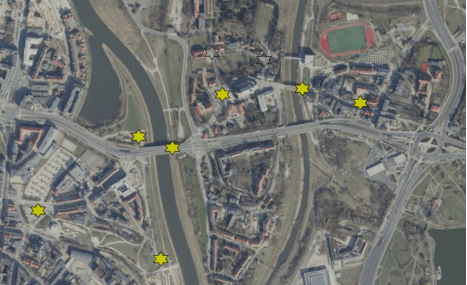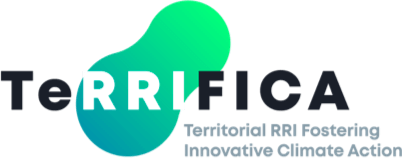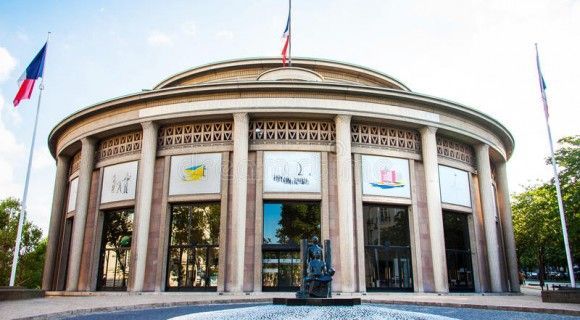Seminar and Green Walk with TeRRIFICA

As a satellite event to the TeRRIFICA consortium meeting, an introductory seminar will be organized on the 30th of May for our academic community of Poznań, especially for young generation (students and PhD candidates). The seminar, entitled “The Agenda that Changed the World”, will be delivered onsite and through our online channels by our guest speaker, Jan-Gustav Strandenaes, the UNEP expert. On the 1st of June, there will be a Green Walk across Poznań to discover nature based solutions, eco-demonstrators, and other green solutions that are used in the city with the aim to protect the natural reservoirs.
THE AGENDA
30th May 2022, 16:00h, Seminar
THE AGENDA THAT CHANGED THE WORLD
Jan Gustav Strandenaes, UNEP expert
Room: 4, Faculty of Human Geography and Planning
Bogumiła Krygowskiego 10, Poznań
1st June 2022, 17:00h, Green Walk
GREEN WALK WITH TeRRIFICA
Śródka – Warta Valley- Old Town
About Jan-Gustav Strandenaes. He began working with the UN on environment and governance in the 1970s and a first UN assignment brought him to Latin America. He has since then taught about the UN for more than four decades, worked with the UN Commission for Sustainable Development for 15 years, worked as an NGO liaison officer at the UN HQ, worked for the Norwegian Foreign Office as a diplomat at embassies in Botswana and Uganda, was for 15 years the director of a Norwegian aid/environment-NGO with projects in Africa, Asia, and Latin America. He has extensive stakeholder experience through 40 years of work on all continents, speaks several languages, is a seasoned university lecturer, has guest-lectured all over the world on UN issues; has given numerous master classes for graduate students on global governance and sustainable development, has evaluated projects and organisations in Africa, Asia, and Latin America, advised governments, chaired UN meetings, facilitated UN processes, translated and authored books and numerous articles on governance, the environment, and sustainable development.
About the Green Walk. The Green Walk will particularly discover to its participants the nature-based solutions, eco-demonstrators, and other green solutions that are used in the city with the aim to protect the natural reservoirs, including river reservoirs, city lakes and ponds, parks and thier biodiversity. It will be also aimed to show how the responsible research and innovation should be incorporated into green urban planning and how citizens can be engaged in cooperation with universities research end education programmes aimed at climate change adaptation and mitigation. When discovering the nature in the city, the participants will also learn the history of Poznań and how it has changed and adopted to climate change for the last decades. By this, it will be the exceptional experience reffering to the longlasting relation between the city, its inhabitants and its nature.
Our goals are to promote the benefits of nature restoration, nature-based solutions and climate change adaptation and mitigation tools in the city planning by educating relevant stakeholders.
The Agenda of the Green Walk with TeRRIFICA, June 1st, 17.00-19.00h
- Poznań Śródka Mural- history of Poznań, the role and impact of the cities’ rivers.
- Ostrów Tumski- an island between two branches of the river Warta in the city and the hears of the Polish state.
- Lech Bridge – the new Warta river bed.
- The importance and impact of Warta river valley ecosystems for the city.
- The Old Warta river bed- – Chwaliszewo neighbourhood development.
- Novel city location on the left Warta riverside.
- The Old Town and its green policy and green solution challenges.
The Map of the Walk

The Organisers
The Green Walk with TeRRIFICA will be organised and led by the academic staff from the Faculty of Human Geography and Plannig of Adam Mickiewicz University, Poznań, that is:
- prof. Paweł Churski, the Dean of the faculty of Human Geography and Plannig, Head of Department of
Regional and Local Studies - prof. Andrzej Mizgajski, Department of Integrated Geography
- prof. Damian Łowicki, Head of the Department of Integrated Geography
- prof. Katarzyna Fagiewicz, Department of Integrated Geography
- prof. Małgorzata Stępniewska, Department of Integrated Geography
- dr. Piotr Lupa, Department of Integrated Geography
- dr. Tomasz Herodowicz, Department of Regional and Local Studies
- dr. Joanna Morawska, Department of Regional and Local Studies
- Patryk Kaczmarek, Department of Regional and Local Studies
About TeRRIFICA: Territorial Responsible Research & Innovation Fostering Innovative Climate Actions
“Climate change is the defining challenge of our time. Mitigating its impacts and adapting to changes already taking place or impossible to avoid will require fundamental changes to societies and behaviours all over the world – as well as scientific breakthroughs, both technological and social. The EU intends to remain at the forefront of the fight against climate change and the necessary transition to low-carbon, sustainable and climate-resilient societies. With this objective, in 2018 the European Commission published an evaluation of the EU strategy on adaptation to climate change and also its strategic vision for a new EU long-term strategy for reducing greenhouse gas emissions, setting out clear priorities to achieve a net-zero carbon economy in 2050. EU-funded research, science and innovation have underpinned both reports, and will keep playing a crucial role in our efforts to tackle climate change and here the EU will continue to lead. We have put climate at the heart of Horizon Europe – the EU’s next research and innovation programme. If we want to achieve a net-zero carbon
economy by 2050, more and better focused R&I is a necessary condition to reach this target and to maintain our standard of living” – Climate Change Adaptation. Directorate-General for Research and Innovation, European Commission. In this context the TeRRIFICA project emerges. Starting on January 2019 and with duration of three and a half years, the TeRRIFICA project is setting up tailored roadmaps and key performance indicators for the implementation of the developed methodologies and climate change adaptation and mitigation activities in regional practice. Customised capacity building for the different stakeholder groups is also be offered.
Through its co-creative multi-stakeholder approaches, participants have the opportunity to expand their knowledge around climate change and innovative climate action and to identify opportunities, drivers and barriers of implementation. Activities take into account challenges for the acceptance and feasibility, technological and regulatory constraints in six pilot regions. Through workshops and regional and international summer schools, TeRRIFICA aims to empower local people, with a particular focus on regional authorities and policy makers, and will develop adequate solutions together with them. Field trips to local and regional promising activities related to research and regional innovation, and broader stakeholder engagement with feedback loops will be organised.
You may also like…










